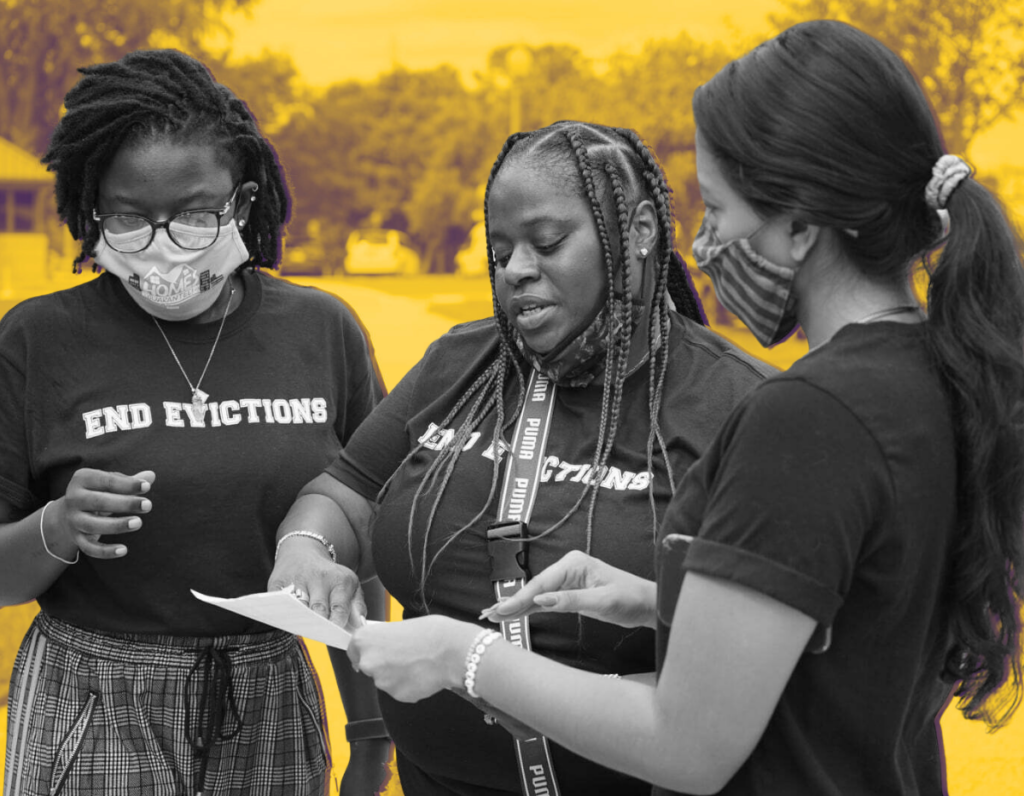The 22nd Century Conference’s discussion about the pro-democracy movement and its response to authoritarianism could not come at a better time. As I write this, Pride Month is underway, and everywhere one looks one can find right-wing attacks on LGBTQ+ people and scapegoating meant to serve as a catalyst for a cruel, greed-driven, authoritarian agenda.
I believe our side can craft another story and use it in organizing to turn back the authoritarian tide. To do so, we will need to come together with a deep commitment to an “Organizing Revival.” That is why People’s Action Institute, where I serve as executive director, recently published The Antidote to Authoritarianism: How an Organizing Revival Can Build a Multiracial Pluralistic Democracy and an Inclusive Economy. Written in collaboration with friends and allies and published with support from the Democracy Fund, this report offers a path to a different future.
It’s a future where everyone belongs: where everyone has good health care, good homes to live in, and a healthy and safe environment for themselves and their loved ones—one where we all have a say in our public life and where we thrive together, not at each other’s expense.
Learning from Kansas
My own story of being marginalized as an immigrant in Kansas, but also of finding community who embraced and welcomed me, is what led me to work for a state where we all could belong. In 2010, Kris Kobach brought his anti-immigrant poison into the Kansas secretary of state’s office. Kobach wanted to use Kansas as a proving ground for a strategy of fear, division, and resentment to advance a right-wing agenda. Instead, we proved that values-based, cross-issue organizing can defeat hate and keep our vision of a multiracial democracy alive.
In Kansas, we mounted a disciplined, deep strategy to build a true united front across differences of race and background. We didn’t just mobilize for mobilization’s sake. We met people where they were through house meetings and countless one-on-one conversations. Through these personal connections we exposed Kobach, his backers, and their agenda, and we made the choice between community-building and division clear. The rigor we brought to the work led to a stunning result: not only did we block Kobach’s path to the governor’s mansion—where he could have done even more harm—we also erased his racist laws everywhere he pushed them.
Kris Kobach is back in office as Kansas’ attorney general, a bad penny that keeps turning up in a fascist vanguard that includes Trump and DeSantis and that now has LGBTQ+ people squarely in its sights. Places like Kansas continue to be “battleground” states for incubating extreme ideas that are shaping regressive policies. But these ideas are not confined to just places like Kansas and other red states; they shape everything from state to federal policies and even the courts. What we learned in Kansas more than a decade ago should be a model for how our movement should react, but unfortunately conservatives have been pouring resources into these efforts for decades, while our ability to respond is in sharp decline at exactly the wrong moment.
Reviving organizing
However, not all is lost! The movement has a strong muscle memory, and that is why People’s Action Institute commissioned our new report calling for an “Organizing Revival.” The report discusses many of the major themes that the 22nd Century Initiative touched on during the conference. It includes insights gathered from 27 of the most innovative, grounded organizers and leaders of organizing networks fighting back against the fascist resurgence. They shared with us a number of key takeaways, including the following:
- A revival and expansion of community organizing is essential to reinvigorating democracy across lines of difference; this is the foundation of a multiracial pluralistic democracy.
- Passing $3 trillion in federal infrastructure investments—as Democrats have done under the Biden Administration—does not automatically translate into support for the common good and majoritarian democracy; community organizing and philanthropy can reduce economic uncertainty that is fueling authoritarianism and help people win and make meaning of public investments as building blocks of an inclusive economy.
- Organizers and philanthropy must reshape how they work together to stop the rise of authoritarianism in the U.S. and tackle intertwined crises from catastrophic climate change to runaway economic inequality.
- Philanthropies that want to address the root causes of racial inequity need to partner with community organizing on a long-term agenda that builds enough relationships and power to make progress on structural racism.
The larger takeaway from the report is that we can defeat the rising tide of authoritarianism and division in this country—and to do that, organizations that are part of a pro-democracy movement must reground ourselves in relational, transformational, power-based community organizing. An organizing revival—with the resources to make it work and take it to scale –– can get us on a path to build a future where we all thrive.
Here’s what an organizing revival would look like.
- Training new organizers and building strong local and national training programs so that we constantly create more trusted organizers who build power and leverage for everyday people against corporations and authoritarians.
- Building multiracial constituencies where we can make the most impact and then investing the necessary resources to grow that base to build resilient communities and counter divide-and-conquer strategies.
- Building (and resourcing) a narrative that helps people understand that corporations and wealthy extremists are causing the pain in their communities, points to a vision of a future where all people thrive, and unites communities behind solutions that can make mid- and long-term changes possible.
- Developing disciplined power analyses that lay the groundwork for stepping-stone campaigns; winning smaller victories first that make bigger victories possible for everyday people.
- Scaffolding stronger, more permanent, and more effective organizing infrastructure and resources that support all of the above so that we can build a movement of stronger organizations that can win real systemic change and defend democracy.
For the past few months, we have worked with trusted partners and allies to put together this shared roadmap to an organizing revival that can strengthen our movement and grow community power. Our full report is available to read online, and I encourage you to take a deeper dive into its insights. As the authors make clear, “the antidotes to authoritarianism are in every community and available to be activated right now.”
Kobach, DeSantis, and Trump—alongside the corporate backers who make their brand of fascism possible—are crystal clear in their divide-and-conquer strategy for unraveling our freedoms. We, on the other hand, will strengthen our hope, joy, and the collective spirit of shared local communities to build the power we need for all of us to thrive. If we make the shifts we need to plant our movement’s roots back in the rich soil of community organizing, together we can build a strong multiracial democracy that includes everyone.
Convergence is pleased to co-publish this article with The Forge.
Featured image courtesy of People’s Action.
Did you enjoy this article?
We're in the middle of our annual fund drive, and this year we're building our own internal infrastructure for subscriptions, meaning more of every dollar pledged goes to fulfilling our mission. Subscribe today to support our work and be a part of Convergence's next evolution.

